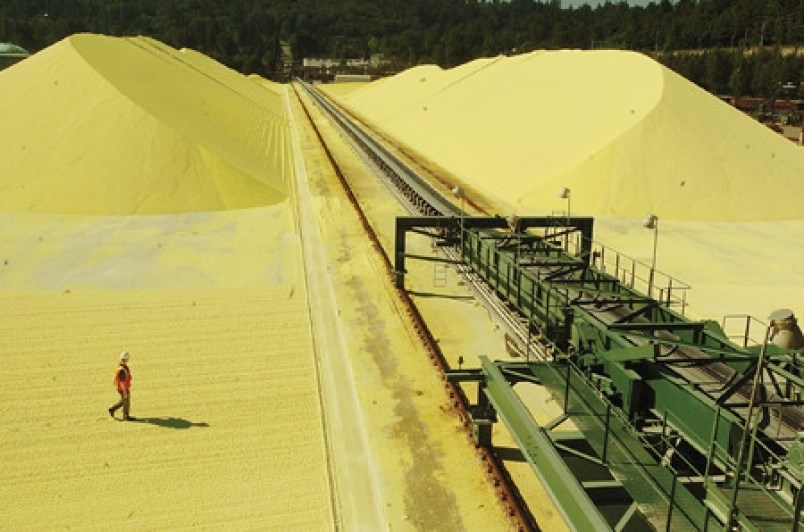World
Appeals Court Supports B.C. Longshoreman’s Right to Refuse Unsafe Work

The Federal Court of Appeal in Canada has upheld a decision that favored a longshoreman from British Columbia who was penalized for refusing to operate a forklift under unsafe conditions. This ruling affects the case of Nenad Habus, who raised safety concerns regarding the placement of hazardous materials at his workplace, Pacific Coast Terminals Co. (PCT), located in Port Moody, B.C.
The incident occurred on December 6, 2022, when Habus, also a first-aid attendant, was instructed to move two pallets of lubricants. He expressed concerns that the pallets were positioned in a manner that could pose a risk to himself and his colleagues. Habus informed his foreman and manager that operating the forklift would distance him from his first-aid station, potentially endangering others in need of assistance.
After refusing to operate the machinery, Habus faced disciplinary action from his employer. He declined to complete a “refusal to work registration form” and, along with his union, the International Longshore and Warehouse Union, Local 500, did not attend a subsequent meeting requested by the British Columbia Maritime Employers Association, which represents PCT. In response, the company issued Habus a three-day suspension along with a one-year prohibition from working at the terminal, a facility that manages and ships various commodities globally.
The Canada Industrial Relations Board (CIRB) had previously ruled in favor of Habus, stating that he had the right to refuse unsafe work under the Canada Labour Code. The CIRB determined that Habus had been wrongly disciplined after he reported his safety concerns. The recent ruling by the appeal panel, comprised of three judges, confirmed this decision, highlighting that Habus had adequately fulfilled his obligation by voicing his concerns verbally at the time of the incident.
The court clarified that the federal Labour Code does not mandate that an employee must complete forms or attend meetings during an investigation of an unsafe work refusal. The judges dismissed the employer’s argument that Habus’s non-participation constituted misconduct, stating that legal provisions allow for investigations to continue even if the employee is absent.
In the words of Justice John Laskin, who authored the opinion for the panel, “The protection provided to employees refusing unsafe work does not come at the expense of the employer’s ability to see the process through and determine after the fact whether the refusal constituted an abuse of rights warranting discipline.”
As a result of this ruling, the CIRB’s directive to rescind the three-day suspension and to compensate Habus for lost wages and benefits will remain in effect. Furthermore, the CIRB retains the authority to address any additional claims for compensation related to the extended one-year suspension. This case underscores the critical importance of workplace safety and the rights of employees to refuse unsafe work conditions.
-

 Politics4 weeks ago
Politics4 weeks agoSecwepemc First Nation Seeks Aboriginal Title Over Kamloops Area
-

 World5 months ago
World5 months agoScientists Unearth Ancient Antarctic Ice to Unlock Climate Secrets
-

 Entertainment5 months ago
Entertainment5 months agoTrump and McCormick to Announce $70 Billion Energy Investments
-

 Science5 months ago
Science5 months agoFour Astronauts Return to Earth After International Space Station Mission
-

 Lifestyle5 months ago
Lifestyle5 months agoTransLink Launches Food Truck Program to Boost Revenue in Vancouver
-

 Technology3 months ago
Technology3 months agoApple Notes Enhances Functionality with Markdown Support in macOS 26
-

 Lifestyle3 months ago
Lifestyle3 months agoManitoba’s Burger Champion Shines Again Amid Dining Innovations
-

 Top Stories2 months ago
Top Stories2 months agoUrgent Update: Fatal Crash on Highway 99 Claims Life of Pitt Meadows Man
-

 Politics4 months ago
Politics4 months agoUkrainian Tennis Star Elina Svitolina Faces Death Threats Online
-

 Sports5 months ago
Sports5 months agoSearch Underway for Missing Hunter Amid Hokkaido Bear Emergency
-

 Politics5 months ago
Politics5 months agoCarney Engages First Nations Leaders at Development Law Summit
-

 Technology5 months ago
Technology5 months agoFrosthaven Launches Early Access on July 31, 2025




















